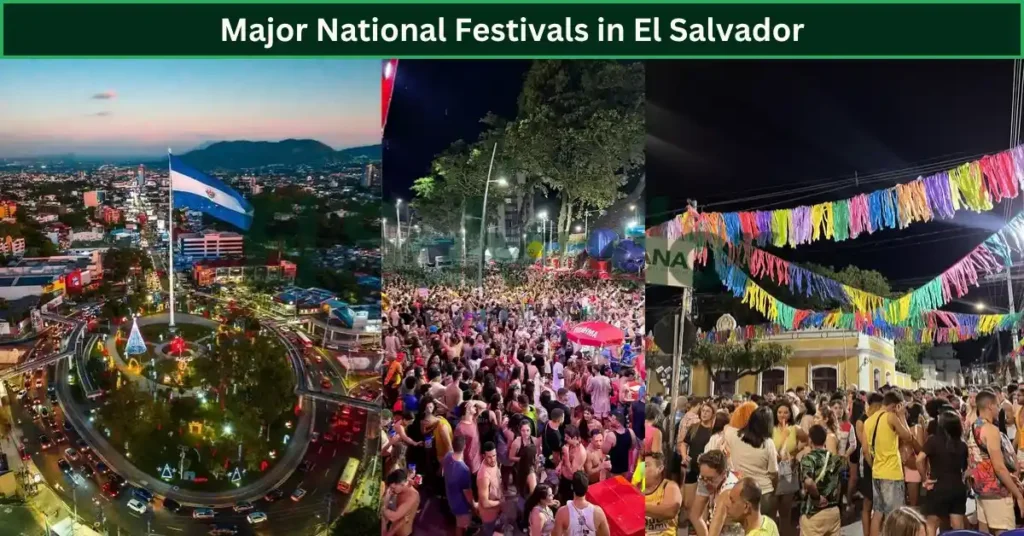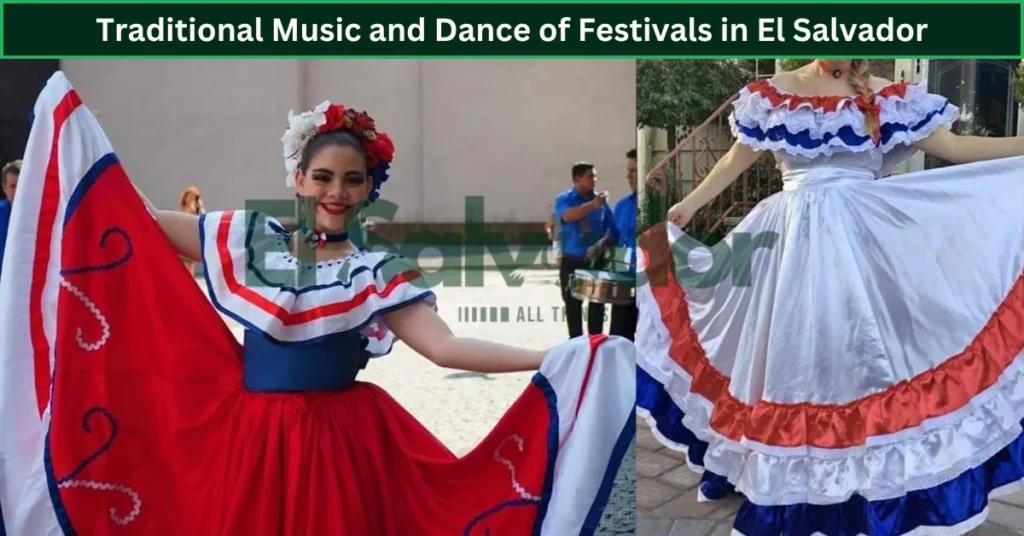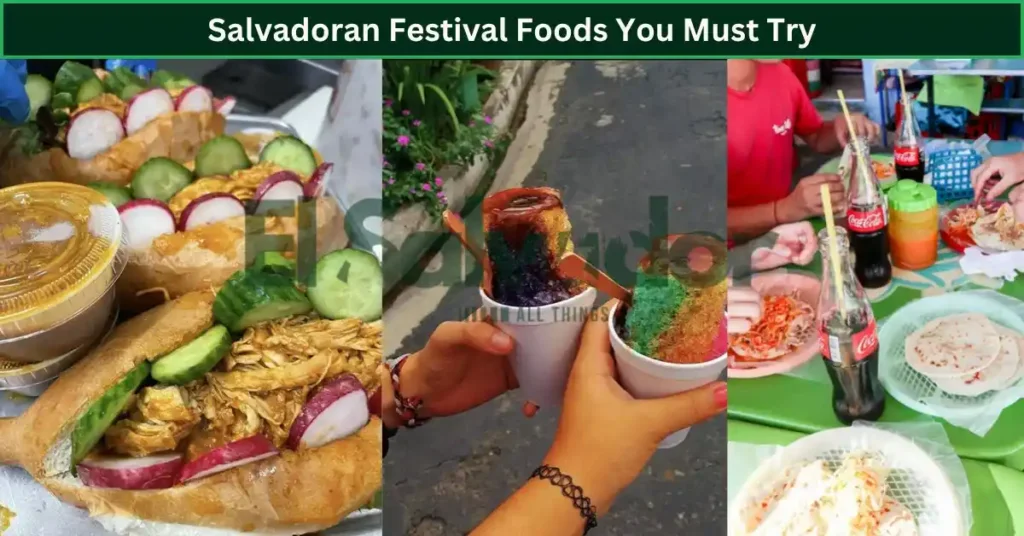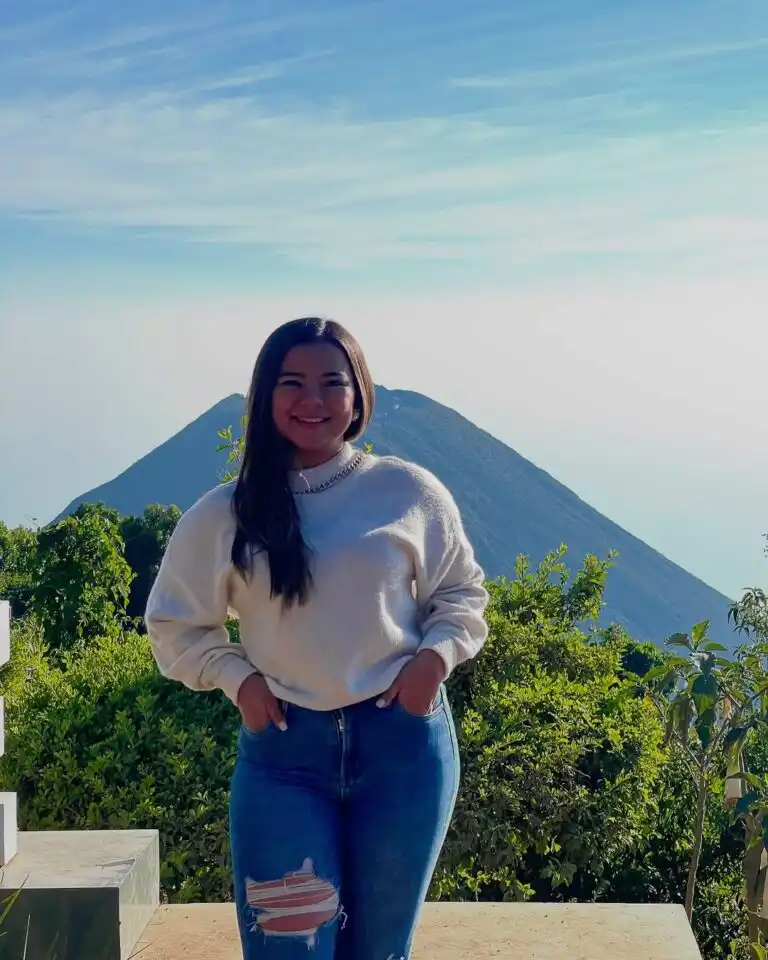Top Festivals in El Salvador You Can’t Miss in 2025
El Salvador is a country with a rich history and vibrant culture, and its festivals are a true reflection of this. Festivals in El Salvador are more than just celebrations; they are an important part of the national identity, deeply tied to El Salvador holidays and traditions. Many of these events are living examples of El Salvador traditions, passed down for generations. They bring people together, celebrate faith, and honor the country’s history and traditions.
Key Takeaways
- Festivals in El Salvador are deeply tied to religion, history, and community, making them an essential part of national identity.
- Major celebrations like Fiestas Agostinas, Semana Santa, Día de la Independencia, and Fiesta de San Miguel attract thousands with processions, parades, and cultural performances.
- Unique local festivals such as Bolas de Fuego, Festival del Maíz, Festival del Café, and Festival de las Palmas offer authentic, lesser-known cultural experiences.
- Traditional music and dance like marimba, cumbia, and folkloric performances—play a central role in expressing Salvadoran heritage.
- Festival attire features vibrant colors, symbolic costumes, and cultural motifs that reflect agricultural roots, religious beliefs, and national pride.
- Salvadoran festival foods such as pupusas, tamales, yuca con chicharrón, and atol de elote are essential parts of the celebration experience.
- Visitors can enjoy festivals safely by respecting local customs, carrying cash, staying aware in crowds, and planning trips around major cultural events.
Why Festivals Are Central to Salvadoran Culture
- Community and Unity: Salvadoran traditions play a big role in strengthening relationships within communities, while also preserving El Salvador culture for future generations. Festivals are a time for people to come together, share joy, and connect with their heritage. These gatherings are true Salvadoran celebrations, blending community spirit with cultural traditions.
- Cultural Pride: Salvadorans take pride in their culture, and festivals are a way to showcase their traditions, music, dances, and food.
- Celebration of Life: Festivals are about enjoying life, faith, and the beauty of the Salvadoran way of living.
The Role of Religion, History, and Community
- Religion: Many festivals in El Salvador have deep religious significance, often celebrating saints or major Christian holidays. They include processions, prayers, and special services.
- History: Some festivals mark important historical events, such as Independence Day, while others preserve old customs passed down through generations. If you want to explore the landmarks behind these traditions, here’s a helpful guide to El Salvador’s historical sites.
- Community: Every festival is a chance for Salvadorans to come together, whether it’s a large national event or a small local celebration. It’s about creating lasting memories and supporting one another.
Major National Festivals in El Salvador
El Salvador hosts several major festivals throughout the year, and these El Salvador festivals offer a unique glimpse into the country’s culture, history, and traditions. These events are a time for celebration, devotion, and national pride.
Fiestas Agostinas (August Festivals)
- When: Early August
- Where: San Salvador
- Why It’s Important: These festivals honor the Divine Savior of the World, the patron saint of San Salvador. It’s a time of religious devotion mixed with joyful festivities.
- What Happens:
- Religious processions
- Music performances and concerts
- Carnival-like atmosphere with parades and dances
- The city fills with people coming together to celebrate faith and culture.
Semana Santa (Holy Week)
- When: The week before Easter
- Where: Across the country
- Why It’s Important: Semana Santa is one of the most significant religious events in El Salvador, marking the passion, death, and resurrection of Jesus Christ.
- What Happens:
- Large processions with statues of saints
- Passion plays reenacting biblical stories
- Special church services and family gatherings
- In some towns, intricate carpets made of colored sawdust decorate the streets for the processions.
Fiesta de San Miguel
- When: Late November
- Where: San Miguel
- Why It’s Important: This festival honors Saint Michael, the patron saint of the city of San Miguel. It’s a time for locals to celebrate their community and faith.
- What Happens:
- Vibrant parades filled with colorful costumes
- Traditional dances and music performances
- A lively atmosphere with food stalls and cultural exhibitions.
Dia de la Independencia (Independence Day – September 15)
- When: September 15
- Where: Nationwide
- Why It’s Important: Independence Day celebrates El Salvador’s freedom from Spanish rule in 1821. It’s a patriotic celebration of the country’s history and sovereignty.
- What Happens:
- Patriotic parades featuring school children, military groups, and local communities
- Traditional music and dance performances
- Fireworks and street parties marking the day of national pride.

Unique and Lesser-Known Local Festivals
In addition to the major national celebrations, El Salvador is home to a variety of local festivals that are full of charm and tradition. One of the most fascinating is the Festival del Cristo Negro, a deeply spiritual event filled with color, music, and faith. These festivals may not be as widely known but offer a glimpse into the heart of Salvadoran culture.
Festival de las Palmas – Panchimalco
- When: During Holy Week
- Where: Panchimalco
- Why It’s Important: This festival celebrates the role of palm branches in religious traditions, particularly during processions.
- What Happens:
- Locals craft beautiful palm decorations, which are carried in religious processions.
- The event is filled with color and faith as people gather to honor their religious beliefs.
- The streets are lined with handcrafted palm items, showing off the skill and creativity of the community.
Bolas de Fuego (Balls of Fire Festival) – Nejapa
- When: August 31
- Where: Nejapa
- Why It’s Important: This festival is a dramatic reenactment of a volcanic eruption and a religious legend that tells of a miraculous event.
- What Happens:
- Locals throw fireballs at each other, creating an exciting and dangerous spectacle.
- The festival is rooted in both tradition and a legendary story, bringing together the community in a thrilling display.
- The sight of fiery balls being tossed through the streets creates a stunning visual display.
Festival del Maíz (Corn Festival) – San José Guayabal
- When: Late August
- Where: San José Guayabal
- Why It’s Important: This festival honors corn, one of the most important crops in El Salvador, essential to both culture and cuisine.
- What Happens:
- Traditional dances, music, and performances dedicated to celebrating corn.
- A chance to taste traditional Salvadoran dishes that showcase corn, like tamales and atol.
- The event fosters a sense of community while highlighting the agricultural roots of the country.
Festival del Café – Concepción de Ataco
- When: November
- Where: Concepción de Ataco
- Why It’s Important: This festival celebrates the coffee harvest, a major part of El Salvador’s economy and cultural identity.
- What Happens:
- Local farmers and community members celebrate the coffee harvest with music, food, and arts.
- Visitors can enjoy freshly brewed Salvadoran coffee, music performances, and cultural displays.
- The festival is a wonderful way to appreciate the country’s rich coffee culture and its importance in everyday life.
Traditional Music and Dance of Festivals in El Salvador
Music and dance are at the heart of every Salvadoran festival. They bring people together, celebrate the country’s rich cultural history, and allow locals to express their identity. From folk rhythms to lively dances, Salvadoran festivals are a feast for the senses.
Instruments and Folk Rhythms
- Marimba: This traditional wooden instrument is the heartbeat of Salvadoran folk music. It’s often played in parades, celebrations, and festivals, creating a lively atmosphere.
- Drums: Drums are a key part of the rhythm section in Salvadoran music. They help create a strong beat that gets people moving during festivals.
- Guitars and Flutes: These instruments are used in many folk songs and add a melodic layer to the music. They are commonly heard in the music played during religious processions or traditional dances.
- Tiple: A stringed instrument similar to the guitar, the tiple is commonly featured in Salvadoran folk music, creating a bright and catchy rhythm.
The Role of Dance in Cultural Expression
- Traditional Dances: Salvadoran traditions are expressed through various cultural dances, which showcase the country’s history, religion, and identity. These dances are performed during festivals to showcase the country’s history, religion, and local traditions.
- La Cumbia: A popular dance that mixes African rhythms with indigenous influences, often performed during major El Salvador fiestas and local holidays. It’s energetic and often performed during parades and celebrations.
- El Torito Pinto: A playful dance where performers wear colorful costumes, celebrating the country’s rural life and customs.
- Cultural Expression: Dance plays a key role in telling stories, whether it’s the celebration of a religious figure or a historical event. It’s not just about movement—it’s about keeping traditions alive and passing them down to future generations.
- Community Bonding: When Salvadorans dance together at festivals, it helps strengthen the bond within their community. It’s a joyful expression of unity and pride in their cultural heritage.
Costumes and Cultural Symbols
The vibrant costumes and symbols seen during Salvadoran festivals are an essential part of the celebrations. They reflect the country’s history, cultural values, and religious beliefs. If you want to learn more about these outfits and their meanings, check out this guide on Traditional Clothing in El Salvador.
What Locals Wear During Festivals
- Traditional Clothing: During festivals, many Salvadorans wear outfits that reflect their cultural roots. This includes colorful dresses for women and charro-style outfits for men. These costumes are often worn during traditional dances and parades.
- Women’s Attire: Women often wear brightly colored dresses, adorned with intricate embroidery. These dresses are typically paired with flowers in the hair, adding to the festive and joyful look.
- Men’s Attire: Men’s traditional clothing includes embroidered shirts, wide-brimmed hats, and trousers, often in earth tones. In some festivals, men wear charro pants, boots, and shirts, symbolizing the rural heritage of the country.
- Masks and Costumes: In festivals like Fiesta de San Miguel and Bolas de Fuego, participants wear masks and costumes to embody various characters or historical figures. These masks often have exaggerated features, adding to the theatrical aspect of the celebration.
Symbolic Colors and Traditional Attire
- Colors of Tradition: In Salvadoran culture, colors have deep symbolic meaning, often representing different aspects of life and faith.
- Red: Red symbolizes passion, life, and strength. It’s a common color in the costumes worn during religious and national festivals.
- Yellow and Green: These colors are associated with the country’s agricultural roots, particularly the harvest of corn, coffee, and other crops. They are often seen in the decorations and costumes during the Festival del Maíz and Festival del Café.
- White: White is used in religious attire and processions, representing purity and faith. It’s common to see white clothing during Semana Santa and other religious events.
- Blue and White: The national colors of El Salvador, blue and white, are worn proudly during Dia de la Independencia (Independence Day) and other patriotic festivals. These colors represent the Salvadoran flag and the country’s freedom.
- Symbolism of Attire: Traditional clothing is more than just beautiful dress; it carries symbols of the country’s history, religion, and values. Each festival’s attire tells a story, whether it’s honoring the patron saint or celebrating national pride.

Salvadoran Festival Foods You Must Try
Food is an integral part of Salvadoran festivals. Whether it’s a savory dish enjoyed with family or a street snack to munch on while exploring the celebrations, Salvadoran cuisine offers something delicious for everyone. Here are some of the must-try foods during festivals in El Salvador.
Pupusas: The National Dish
- What Are Pupusas?: Pupusas are thick corn tortillas stuffed with a variety of fillings like cheese, beans, pork, and even squash. They are a Salvadoran favorite and often served with curtido (a tangy cabbage slaw) and tomato sauce on the side.
- Why They’re Special: Pupusas are considered the national dish of El Salvador. They’re not only tasty but also a part of the country’s cultural identity. You can find them at nearly every festival and street corner, with each vendor offering their unique twist on this beloved dish.
- What to Expect at Festivals: During festivals, vendors sell fresh, hot pupusas, and locals gather around to enjoy them with friends and family. Whether you’re at Fiestas Agostinas or Semana Santa, pupusas are a must-try dish that will leave you craving more.
No matter which El Salvador festival you attend, food is central to the experience — from pupusas to sweet treats, meals are woven into every El Salvador celebration.
Festival Snacks and Street Foods
- Yuca con Chicharrón: Yuca (cassava) is often fried and served with crispy chicharrón (fried pork skin). This hearty snack is popular at festivals, offering a crunchy and savory treat that pairs perfectly with a cold drink.
- Tamales: A festival favorite, tamales are made from corn dough wrapped in banana leaves and filled with meats, vegetables, or cheese. They are steamed to perfection and often enjoyed with hot sauce or sour cream.
- Atol de Elote: This is a sweet corn drink served warm and often enjoyed during festivals, especially during the colder months. It’s a comforting and satisfying treat to enjoy as you wander through the celebrations.
- Empanadas: These fried dough pastries are filled with sweet or savory fillings like beans, cheese, or fruit. They’re perfect for snacking while watching parades or enjoying the music at any local festival.
- Raspados: This refreshing treat is a shaved ice dessert topped with syrups and sweet flavors like tamarind or coconut. Raspados are especially popular during hot festival days and are perfect for cooling off while taking in the festive atmosphere.

How to Experience Festivals as a Tourist
El Salvador’s festivals are a fantastic way to dive into the local culture, meet people, and experience the joy and vibrancy of Salvadoran life. Whether you’re planning to attend a major national festival or a lesser-known local event, here’s how to make the most of your experience.
Best Times to Visit
- Festivals Year-Round: El Salvador celebrates festivals throughout the year, so there’s always something exciting happening. If you want to see the biggest events, here’s when to plan your trip:
- Fiestas Agostinas (August Festivals): Early August in San Salvador, celebrating the Divine Savior of the World with processions and vibrant parades.
- Semana Santa (Holy Week): Late March to early April, with religious processions across the country.
- Dia de la Independencia (Independence Day – September 15): Independence Day festivities are a must-see for anyone visiting during this time. These El Salvador celebrations and traditions highlight not just patriotism, but also the cultural pride that defines the nation’s identity.
- Bolas de Fuego (Balls of Fire Festival): August in Nejapa for a unique, fireball-throwing celebration. This fiery El Salvador festival is one of the most unusual in Central America and shows how Salvadoran creativity turns history into unforgettable celebrations in El Salvador.
- Best Time for Weather: The dry season from November to April offers the best weather for exploring and attending festivals outdoors.
Do’s and Don’ts for Foreign Visitors
Do’s:
- Respect Local Customs: Always show respect for the local traditions and religious practices, especially in events like Semana Santa.
- Join the Local Fun: Participate in parades, dances, and the food festivities. It’s a great way to feel part of the celebration.
- Bring Cash: Many street vendors and festival booths accept cash only, so it’s always a good idea to carry small bills.
- Wear Comfortable Shoes: Festivals often involve walking or standing for long periods, so wear comfortable shoes for a better experience.
Don’ts:
- Don’t Disrupt Processions: During religious festivals like Semana Santa, it’s important to be respectful and avoid causing any disruptions.
- Don’t Overpack: Keep it simple and light; you’ll be walking a lot, so pack essentials like sunscreen, water, and a hat.
- Avoid Public Drinking: While drinking is part of many festivals, excessive alcohol consumption in public places can be frowned upon.
Staying Safe During Crowded Events
- Watch Your Belongings: Festivals can get crowded, so keep your personal belongings close and be mindful of pickpockets. Use a crossbody bag or money belt for safety.
- Stay Hydrated: Festivals can get hot, especially during the dry season. Drink plenty of water to stay refreshed and avoid dehydration.
- Have an Emergency Plan: In crowded places, it’s easy to get separated from your group. Have a meeting spot in case you lose each other and make sure you have a working phone with local numbers.
- Stay Aware of Your Surroundings: While El Salvador is generally safe, it’s always important to stay alert, especially in unfamiliar areas or during large gatherings.
Conclusion: Why Salvadoran Festivals Are a Must-See
Festivals in El Salvador are more than just celebrations; they are a true reflection of the country’s rich culture, deep-rooted traditions, and vibrant community spirit, making El Salvador holidays and traditions a key part of its national identity.
Whether you’re experiencing the religious solemnity of Semana Santa or the lively energy of Fiestas Agostinas, these festivals offer a unique glimpse into the heart and soul of El Salvador.
FAQ’s
What is the most popular festival in El Salvador?
The most popular festival in El Salvador is Fiestas Agostinas, held in San Salvador in August. It honors the Divine Savior of the World with vibrant parades, music, and religious ceremonies.
What is El Salvador famously known for?
El Salvador is famous for its rich culture, beautiful beaches, and active volcanoes. It is also known for its pupusas, a traditional Salvadoran dish loved by locals and visitors alike.
What is the holiday of El Salvador?
One of the most important holidays in El Salvador is Independence Day, celebrated on September 15. This day marks El Salvador’s independence from Spain and is celebrated with parades, music, and patriotic displays.
What is the most famous tradition in El Salvador?
The most famous tradition in El Salvador is Semana Santa (Holy Week), observed with religious processions, ceremonies, and festivities across the country. It is a deeply spiritual time, marking the Passion, Death, and Resurrection of Christ.
What are the top 3 religions in El Salvador?
The top three religions in El Salvador are Roman Catholicism, Protestantism, and Evangelical Christianity. The majority of Salvadorans identify as Roman Catholic, but Protestantism has been growing in recent years.
What is El Salvador’s national food?
El Salvador’s national food is pupusas, which are thick corn tortillas filled with a variety of ingredients like cheese, beans, and pork. They are often served with curtido, a tangy cabbage slaw, and tomato sauce.
About Author
Hi, I’m Diana Alferez, a proud Salvadoran passionate about helping travelers discover the true beauty and culture of my country.
At All Things El Salvador, we provide accurate guides, practical tips, and fresh insights from both locals and adventurers, helping you explore confidently while breaking outdated perceptions of this incredible destination.

